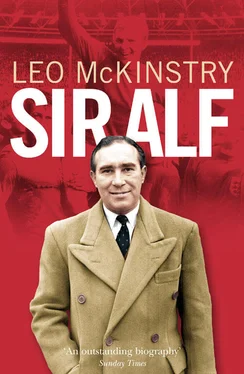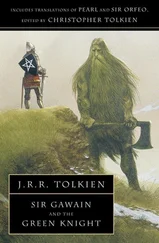He was the sort of individual who was always good with the round ball. Some of us began to play golf. We had a little competition and the one who made the lowest score got a set of clubs. And who won? Alf, of course. When we were playing snooker, he was very controlled, so he did not miss many shots. The same was true of his cricket. We were once playing a match in Portsmouth and the opposition had a couple of good bowlers who were attached to Sussex. Our team was put together at the last minute, just from those who wanted to play – and Alf was not one of them. But all of us went down to the match, some of us, like Alf, just as spectators. Soon the opposition were running through us like anything. Then Alf Freeman told us that Alf had been a good cricketer in the army, so he suggested that Alf go in. Alf was a bit reluctant, as he was wearing a navy blue suit at the time. But we persuaded him to don his pads over his dark trousers. So he went out to bat like that. And immediately he stopped the rot, scoring a half century. It was not wild stuff, but controlled, sensible hitting. Nothing silly but he played all the shots.
A couple of beers, a day at the cricket, a night at the dog track, these were the main forms of entertainment for the footballers of the late 1940s, just as they were for most of the working class. In contrast to the multi-millionaires of today’s Premiership, most professionals then remained close to the ordinary public in terms of earnings and lifestyle. None of the Southampton players, including Alf, owned a car, while most of them lived in rented accommodation. Almost all their travel was undertaken by rail and if they had to change trains in London, they took the tube, with their kit following in a taxi. Their official wages were not that far divorced from those of clerical staff. The average pay in the League in 1948 was just £8 a week and the maximum wage was set at £12, despite the fact that the clubs and the FA were enjoying record-breaking attendances. That year, 99,500 people paid £391,000 to see England play Scotland at Wembley, yet the 22 players involved received just £20 each, their payments amounting to little more than 1 per cent of the total gate. Even worse, they were punitively taxed on their earnings by the Labour government, so they actually received only £11 in their pockets. Looking back, former Saints winger Eric Day comments:
It was not a very glamorous life. I was paid £6 a week in the winter, £4 in the summer, £2 for a win and £1 for a draw. Plus the club charged me 30 bob a week for rent. So I did not have much left over. Certainly I could not have dreamt of having a car. But I felt I was lucky. I had been in the forces for six years, and to come out as a free man, and then to be paid for playing football was something beyond my imagination.
Goalkeeper Ian Black shares the same view about the effect of the war:
The wages were decent compared to manual work. I think footballers of my generation were more concerned about conducting themselves properly. Most of us had been in the forces, not the best times of our lives, and I suppose coming from that environment created a deep impression. Many of us just felt lucky to be playing football and did not want to spoil it.
Apart from the dismal financial rewards, the other drawback that the players of Alf’s generation had to contend with was the poor equipment and facilities. The bleak, down-at-heel atmosphere of post-war Britain extended all too depressingly to football. Training kit was poor, pitches were a mud-heap – when they were not frozen – and the cumbersome boots were more fit for a spell in the trenches. The classic English soccer footwear remained the ‘Mansfield Hotspur’, which had first been designed in the 1920s and made a virtue of its solidity, with its reinforced toe and protection for two inches above the ankle. The two main types of ball, the Tugite and the Tomlinson T, were equally robust. Both tended to absorb mud and moisture, becoming steadily heavier and larger as a match progressed. As goalkeeper Ian Black recalls: ‘There was not much smacking in the ball from a distance then. When it was wet, if you managed to reach the half-way line, it was an exceptional kick.’ Bill Ellerington says:
The ball was so heavy in those days. Beckham could not have bent it on a cold, damp February night. The ball used to swell right up during a game. If you did not hit it right, you’d have thought you’d broken your ankle. If you headed the ball where the lace was, you felt you’d been scalped. You had to catch it right. Our shin pads were made of cane and the socks of wool so they got heavy in the damp. The facilities were terrible at the Dell. We had a great big plunge bath and just one or two showers. In February, when the pitches were thick with mud, the first in got the clean water. At the end, the water was like brown soup. On a cold winter’s day, the steam from the bath would make the walls drip with condensation. You did not know where to put your clothes. If you had a raincoat, you would place it first on the hook so your clothes did not get wet. But you just accepted it.
But this was the environment in which Alf was now proving himself. By early 1948 he was in the middle of a run of 91 consecutive League games for Southampton, and was winning increasing acclaim from the press. After a match against West Bromwich Albion, in which he twice saved on the goal-line, he was described in the Southern Daily Echo as ‘strong, incisive, resourceful’. The team were pushing for promotion and also enjoyed a strong FA Cup run which carried them through to the quarter-finals before they were beaten 1-0 at home by Spurs on 28 February. The Echo wrote of Alf’s performance in this defeat:
Alf Ramsey is playing so well that he is consistently building up a reputation which should bring some soccer honour to him. He certainly impressed highly in this game and is steadily and intelligently profiting under the experienced guidance of partner and captain Bill Rochford.
Of Alf’s burgeoning influence, Ian Black says:
The spirit of our side was first class and my relationship on the field with Alf was very good. He was such a great reader of the game. He always seemed to know what was going to happen next. He lacked a bit of pace but he made up for it with his wonderful positional sense. He was a first-class tackler because he had such a good sense of timing. He never went diving in recklessly. He was never a dirty player. He hated anything like that. Nothing ever seemed to ruffle him. He was always very smart, conducted himself impeccably. Unlike some players, he was never superstitious. He never caused upsets or became aggressive. He was very confident of his own ability, which is half the battle in football. Alf had a natural authority about him. His approach, his knowledge of the game would influence players. So it was no surprise to me that players responded to him when he was a manager. He was the boss; they would understand that. There was no messing about with him, even when he was a player. I don’t mean that he was difficult, but he was able to impose his views and because they were often so right, he was all the more respected.
At the end of the 1947-48 season, the Football Echo described Alf as Southampton’s ‘most improved player’. Though Southampton had failed to win promotion, as they finished behind Birmingham City and Newcastle, the sterling qualities of Alf attracted the interest of the national selectors. In May, Alf received a letter from Lancaster Gate informing him that the FA were ‘considering’ him for the forthcoming close-season tour of Italy and Switzerland. Then a few days later, as he sat in his digs listening to the six o’clock news on the BBC Home Service, he heard to his joy that his place in the sixteen-strong party had been confirmed. Alf was rightly thrilled at this elevation; ‘I could not believe my good fortune,’ he wrote later, and for the first time in his life he was the focus of intense national media interest, with photographers and reporters turning up at the Dell to cover the story of the delivery boy made good. ‘While his choice as the sixteenth member of the party will occasionally surprise in many quarters, Ramsey nevertheless deserves the honour. He has had only one full season in League soccer and has made such rapid progress that the selectors have watched him several times,’ reported the News Chronicle.
Читать дальше












